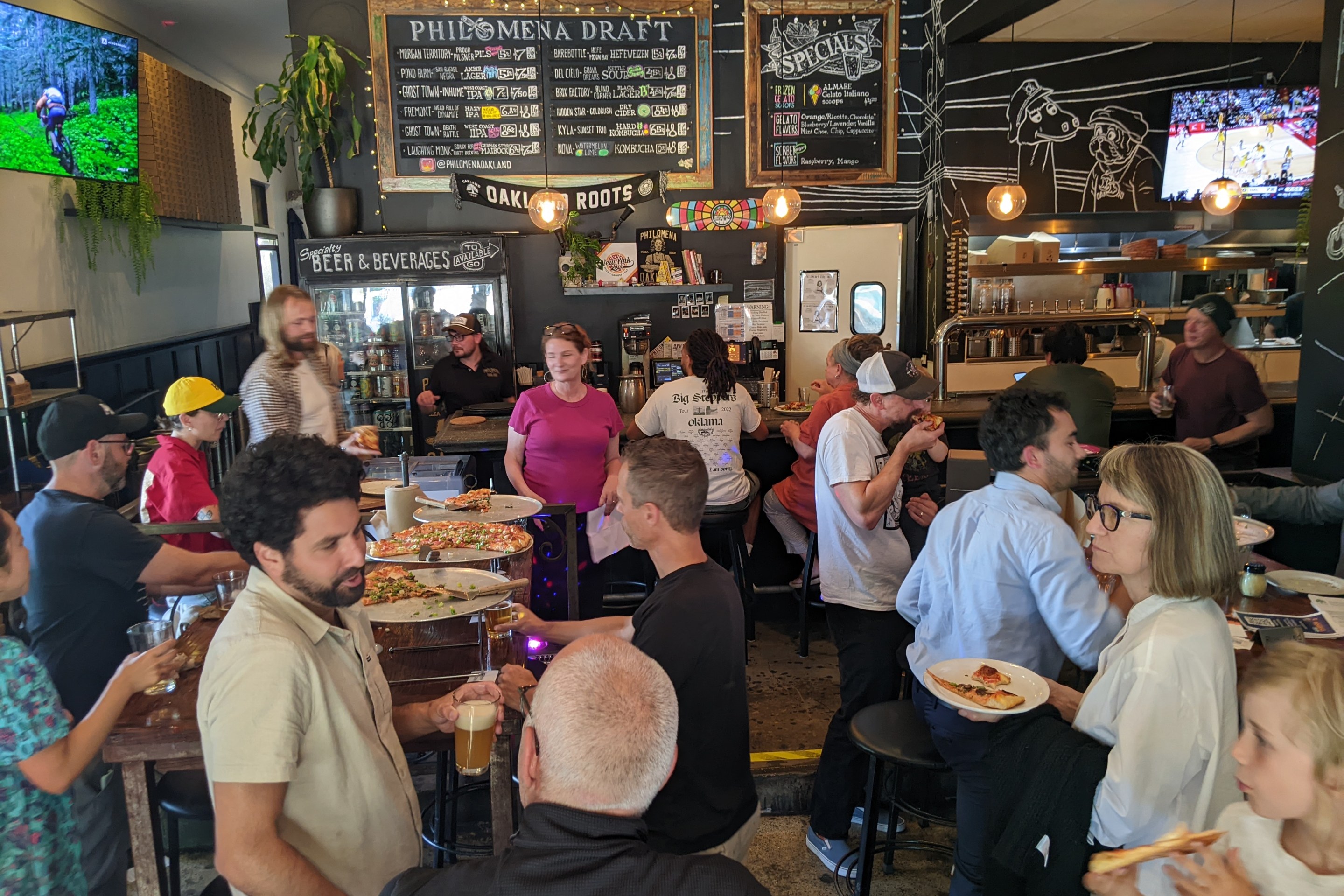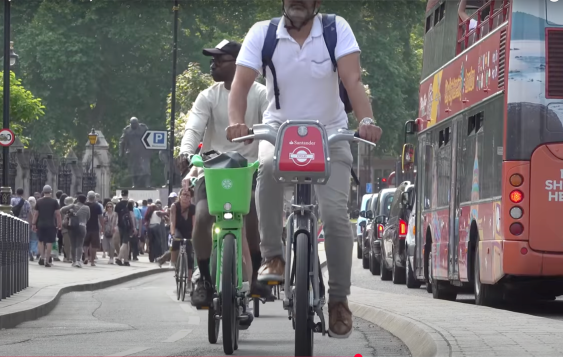Today on the Streetsblog Network, Portlandize
is talking about freedom -- the freedom to move about your community
without fear, the liberty to make use of public spaces as a human
being, not as the operator of a motor vehicle. It's a post that gets to
the heart of the issues we talk about on our blogs every day of the
week:
This doesn't look much like freedom. Photo by Daniel Greene via Flickr.
[M]any
cities
have taken space that was the domain of people, just people, and have
pushed them out of it, unless they are in automobiles... [M]uch of
small town America has become
simply highways with strip malls alongside. Most often, this was done
without any consultation of the citizens -- for instance, Interstate 5
was laid out in North Portland, and all the residents who lived in the
path of the freeway were simply told they had to move, no choice about
it.What this resulted in was an increasing suspicion, and finally a
confident opinion in many places, that if you weren't in a car, you
didn't belong outside of your house/apartment/yard. It became more and
more difficult to move around outside of your own yard if you weren't
in a car in many places. Because of this, many places in the U.S. have
inherited cities populated with metal boxes instead of trees, grass,
flowers, and most notably, people. Because of this, many places in the
U.S. have inherited cities that are noisy, smelly and stressful.
Because of this, many places in the U.S. have inherited cities in which
their children must stay inside, cannot go anywhere on their own, where
children and parents alike feel afraid to enter public space, and
where, once you step out your front door, you must be on guard.
Last week we put up a slide show
of cars and trucks hogging space around the country and the globe. The
images, sent in by blog network members and readers, illustrate the
pervasiveness of the problem.
At the same time, the response
indicates the growing number of people who can see that we've got a
problem here -- and who are organizing to do something about it. And
that is how change begins.
More form around the network: Copenhagenize finds a growing number of ads that make cycling look downright normal -- and attractive. Planning Pool
has the results of the American Planning Association's 2009 Great
Places in America contest. And if you haven't seen the video of a girl
getting a ride to preschool on her dad's Xtracycle yet, Car Free Days has it for you. You want freedom? That's what freedom looks like.





